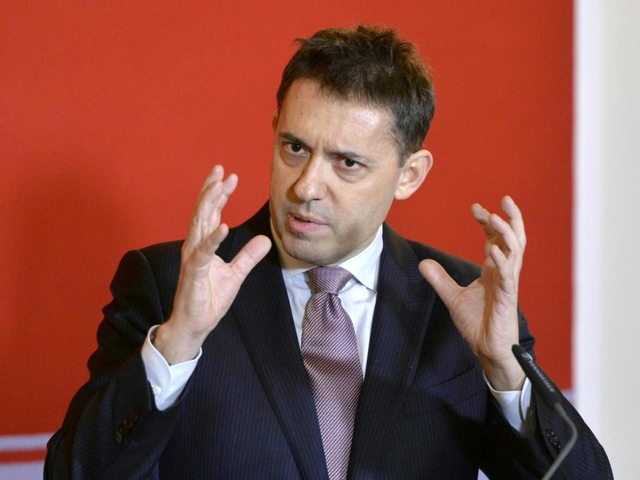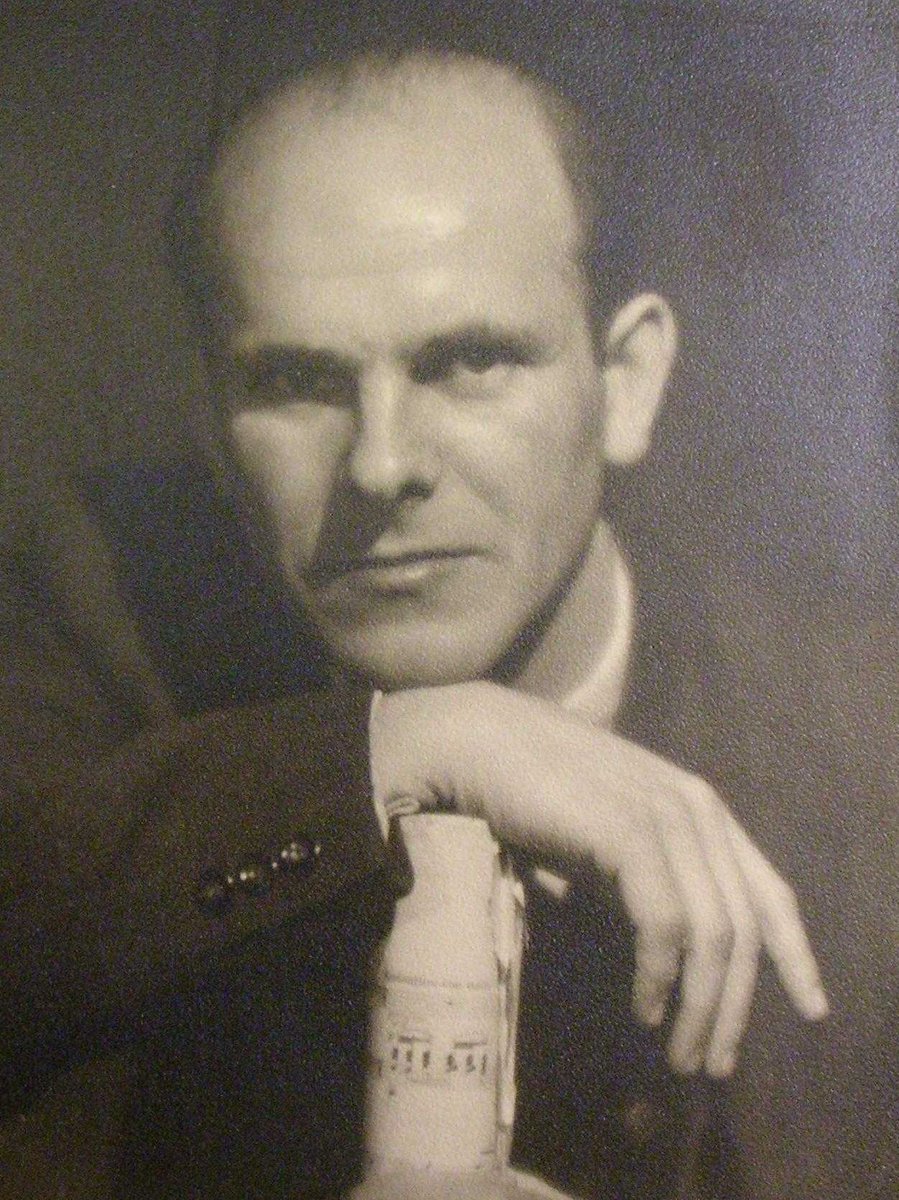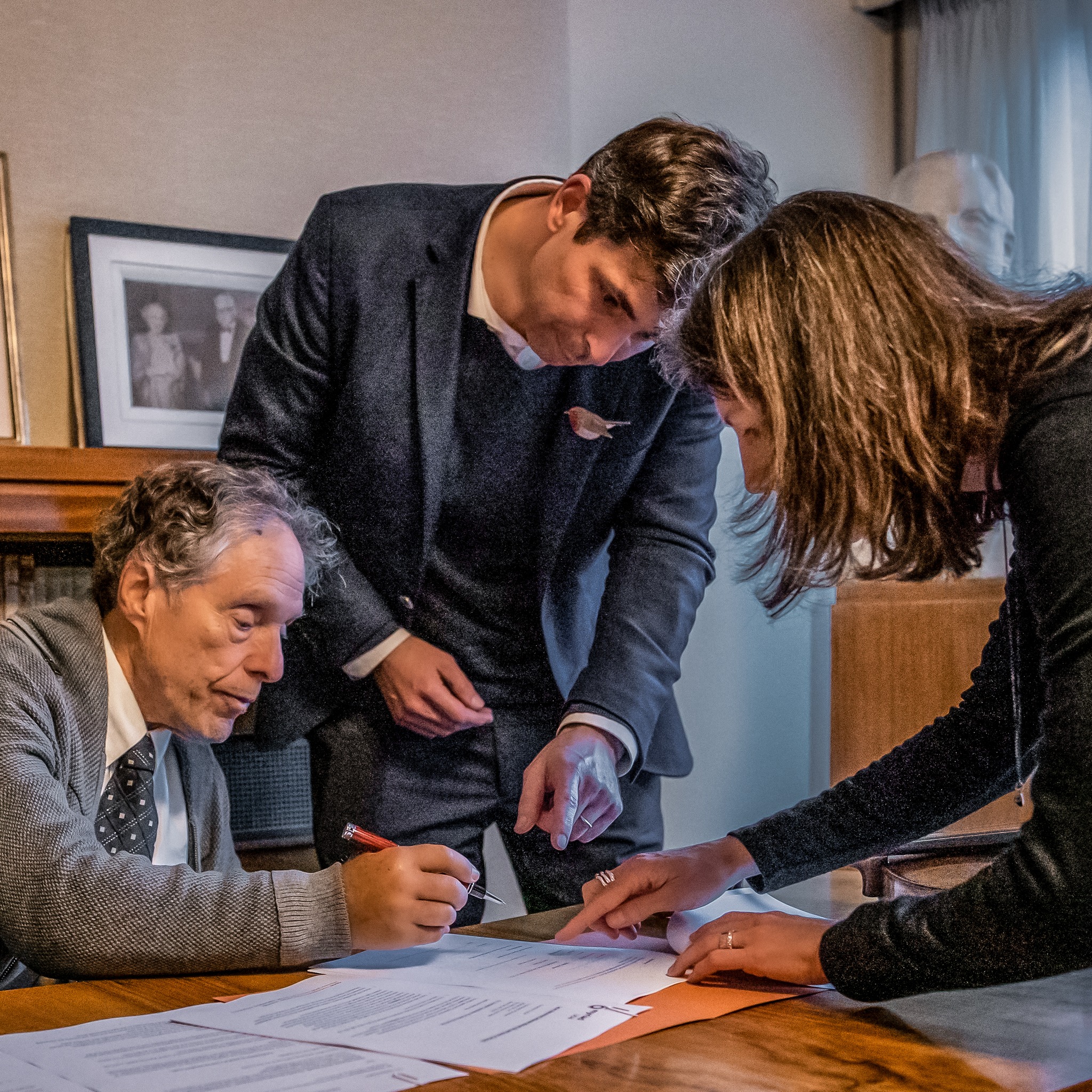Bogdan Roscic is ordered to reply swiftly to plagiarism charges
mainThe future of the incoming director of the Vienna State Opera has turned swiftly political.
The Austrian People’s Party (OVP), which appointed Roscic to the job, has told the Sony Classical chief to supply ‘full transparency’ about allegations that he based parts of his university dissertation on another man’s work.
Here’s this morning’s statement from the OVP:
Die Wiener Staatsoper ist eine Kulturinstitution mit international hervorragendem Ruf und gutem Renommee. Dieses Aushängeschild der österreichischen Hochkultur ist so etwas wie eine Visitenkarte Österreichs. Daher muss auch der Ruf des Staatsoperndirektors untadelig sein. In diesem Sinne wäre es mehr als wünschenswert, dass der designierte Staatsoperndirektor Bogdan Roscic die in den letzten Tagen aufgetauchten Plagiatsvorwürfe seine Dissertation betreffend aufklärt.
Natürlich darf es keine Vorverurteilungen geben und ich gehe davon aus, dass Herr Roscic die Aufklärung dieser Plagiatsvorwürfe unterstützt und die Öffentlichkeit auch informiert. Das ist für den Ruf der Staatsoper – einer der ersten Bühnen des Landes, die Bogdan Roscic ab 2020 führen soll – wichtig und notwendig. Ich vertraue darauf, dass sich die Vorwürfe klären lassen.
‘The Viennese state opera is a cultural institution with an outstanding international reputation. This emblem of Austrian high culture is like a business card for Austria. The reputation of the opera’s director must be impeccable. It is therefore more than desirable that Bogdan Roscic should clarify the plagiarism allegations raised in the last few days regarding his dissertation…. It is important and essential that this matter is clarified.’
Academic plagiarism, if proven, is generally a cause for dismissal in Austria and Germany.






So, 30 years later, this is suddenly an issue? And the ‘plagiarism detective’ Stefan Weber has graciously declined to comment on who ordered the investigation.
Of course, the allegations are serious. But why now, and cui bono?
What IS an issue here – regardless of whether the allegations are true or false – is the question of whether the cultural minister Herr Drozda exercised due dilligence in the appointment of Herr Roscic. He deliberately chose to take the decision to appoint him without the help of a search committee. Maybe unwise.
absolutely right.
When someone is appointed on such post, it is normal that his history is being scanned. The motivation, and by whom, is irrelevant.
No. It is definitely not irrelevant, particularly not in Austria where political appointments, i.e. those jobs financed by the state, have too often been made for reasons of party affiliation, rather than ultimate suitability for the job.
That is not my point, any person occupying such post has to be ‘clean’. If this appointment was made for political rather than reasons of suitability, the man has still to be scanned, probably more so. At the announcement of the appointment it was already a bit strange that references were made to Meyer with the suggestion that M had not been doing a good job, which is ridiculous.
Note that politicians use the word ‘Hochkultur’, underlining its importance for national cultural identity, or national identity ‘tout court’. A lesson for the liberal Anglosaxon world where such terms are never used, neither on the political level, nor in reports, government initiatives, cultural stimulation programmes etc. etc. where accessibility, diversity and community are the buzz words.
The tragedy in Austria is that very often, those politicians responsible for making cultural appointments or sitting on the boards of cultural institutions, would not recognise Hochkultur if it came up and bit them! Seldom would they buy tickets to cultural events. All they seem interested in is the ‘bottom line’. Philistinism reigns.
If this is so, it is miraculous that Austria still has so much to offer in cultural terms – it’s the people themselves of course who produce the things.
Nothing will happen to him in Austria, we habe a very strong left cultur Mafia. Look at Hartmann and the Burgtheater all forgotten.
>>Academic plagiarism, if proven, is generally a cause for dismissal in Austria and Germany
Norman, that’s hilarious. Can’t speak for Germany but let me tell you how things go down in Vienna. A person of note – a minister, say, or senior media figure or such like – phones the Rektor of an institution of higher learning. As a result the notable person’s niece has her doctorate nodded through, even though the professor supervising the Phd would fail it if they could, on the grounds of myriad weaknesses, including plagiarism. Or else the dodgy doctorate is awarded without any phone call, as everyone knows the “right” thing to do.
This happens so often it barely warrants comment, unless somewhere in the chain of responsibility there is someone from a different background, probably AngloSaxon, who takes a stuffier view and raises objections. That person will then come under pressure: turn a blind eye or your (state funded) academic career in Austria will suffer.
And all because Austrians break out in anxious sweat if they don’t have a title (Frau Professor, Herr Doktor etc) so everyone has to have one. This goes way back. Read the real story of how Freud got his professorship.
Absolutely right. My only question is, did Roscic have those kind of connections when he was a student? As far as I know, he comes from a humble immigrant background and worked his own way up as a journalist. I’m struggling to imagine which “person of note” would have made the phone call on his behalf.
Thank you. But just to be clear, and sorry if I wasn’t before, there is a risk of muddling issues which are in fact separate.
First, my remarks were only in response to Norman’s offhand comment about plagiarism culture. It strikes me as funny (and ironic) that there is a “shitstorm” about this, given the ways many of those in Austria get their qualifications.
Second, I was not suggesting that anyone made any phone call about the student Roscic back in the day: it is far more likely that traditional Austrian academic incompetence simply didn’t spot any problem with his work at the time.
Finally, it is however clear that a phone call WAS made to get him his job at the opera. And another call was made to try and blacken his name with this newly discovered allegation.
Unless a particularly well-known piece of research is plagiarised I don’t know how any academic can be expected to spot it for sure. There are thousands and thousands of low-grade pieces of work and nobody can be expected to know every single one by heart. (Nowadays we can use computers to help sift whether it is the candidates work, but even so academics are likely to miss things sometimes).